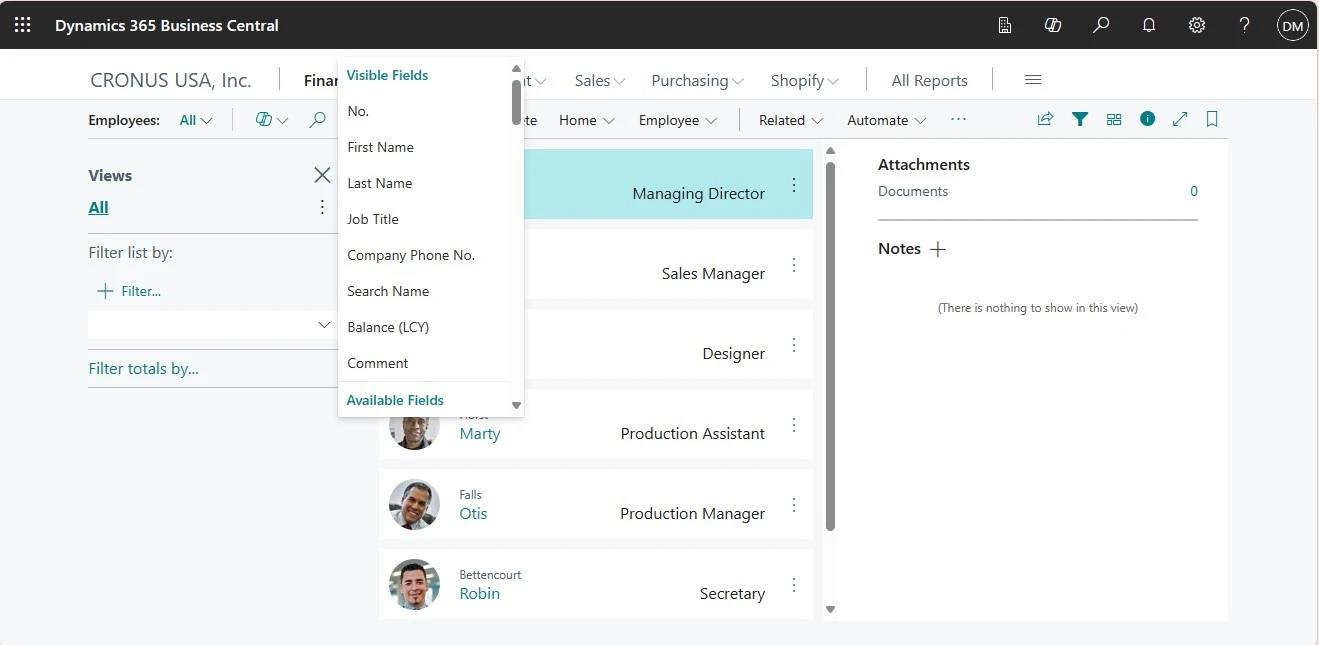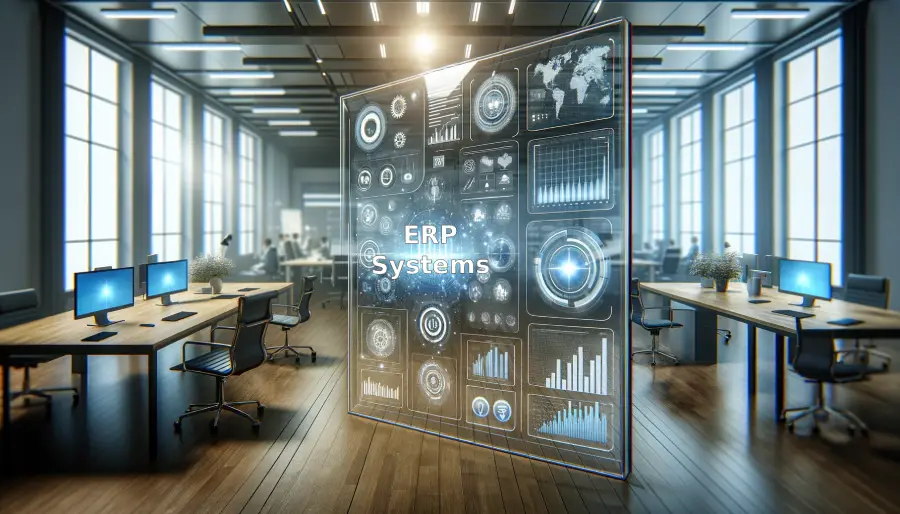Microsoft ERP Review For 2025
Microsoft Dynamics 365 ERP Plans & Pricing
Microsoft Dynamics 365 Comparison
Expert Review
Pros
Cons
Microsoft Dynamics 365 ERP's Offerings
Microsoft 365 Business Central offers a range of ERP plans tailored for various business needs, featuring the Essentials Plan at $70 per user/month, the Premium Plan at $100, and a basic Team Members Plan at $8. The Essentials Plan covers core functionalities like financial and project management, while the Premium Plan adds advanced features including manufacturing capabilities and enhanced CRM. A free 30-day trial is available to test its comprehensive features, which are favorably compared to competitors like SAP Business One and Oracle NetSuite, particularly for its integration with the Microsoft ecosystem and user-friendly interface.
Free Version or Free Trial
Microsoft 365 Business Central offers a 30-day free trial, allowing potential users to explore the features and capabilities of the ERP platform before committing to a paid plan.
Value and Comparison to Competition
Microsoft 365 Business Central is considered good value due to its comprehensive feature set and seamless integration with other Microsoft products. It provides robust functionality for small to medium-sized businesses at a competitive price point. Compared to other ERP solutions like SAP Business One and Oracle NetSuite, Business Central offers similar capabilities but stands out due to its ease of use, flexibility, and strong integration with the Microsoft ecosystem.
Customer Support
Microsoft 365 Business Central offers comprehensive help and support, ensuring users have access to various resources to address their needs. The support is generally responsive, with multiple channels available for assistance, including live chat, phone, email, and extensive online documentation.
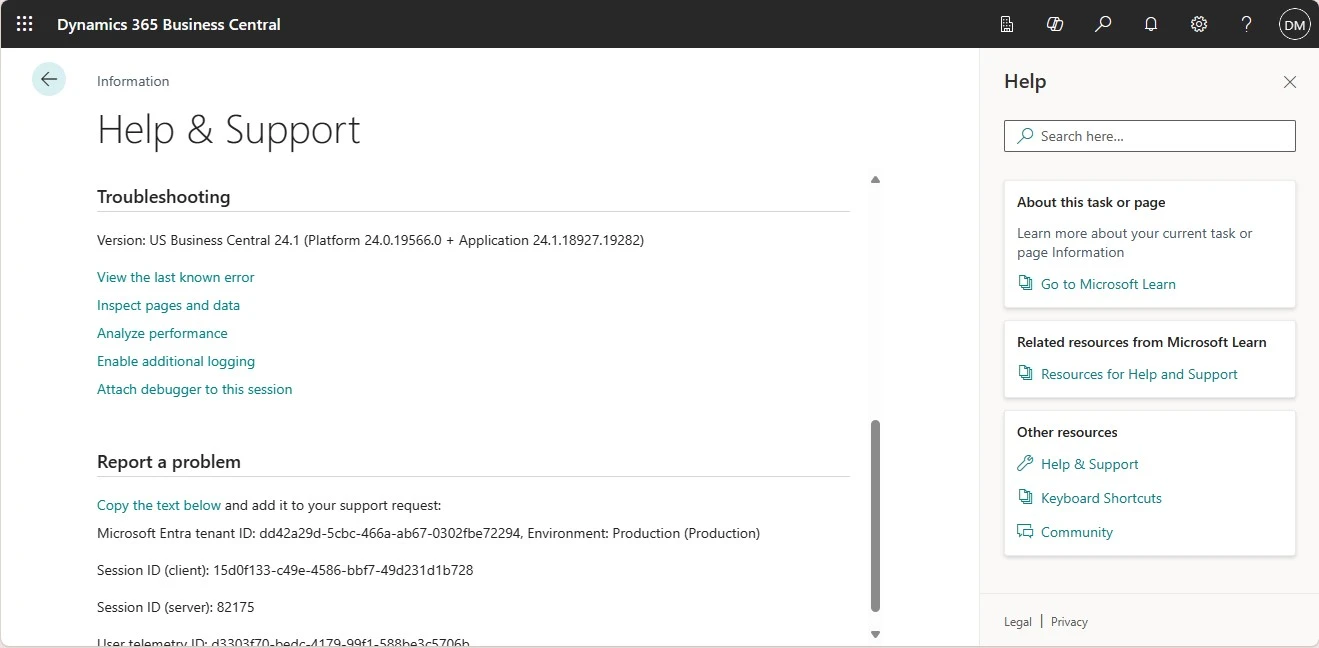
Features & Functionality
General Features
Special Features
Special Automations:
Business Central offers workflow automation that helps streamline processes across different departments. Automations can be set up for approvals, notifications, and task management, reducing manual intervention and enhancing efficiency.
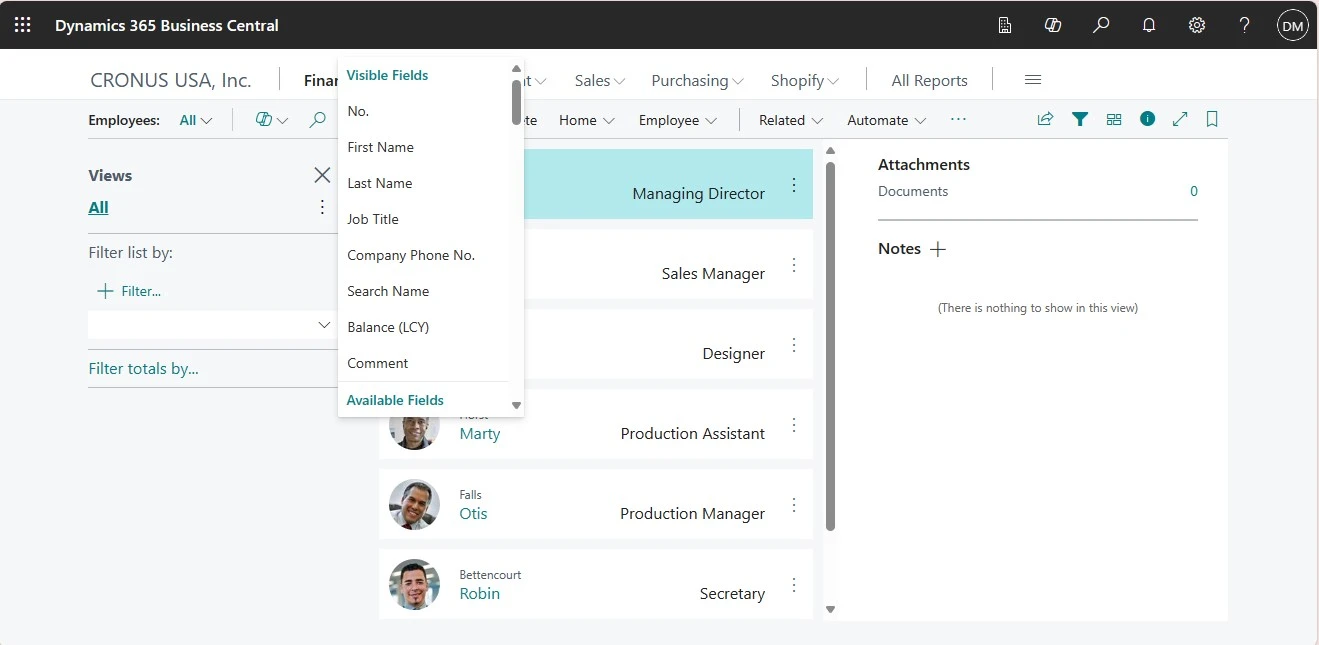
Multi-Currency Invoicing:
Supports multi-currency transactions, which is essential for businesses operating globally. It allows users to manage and report on financial transactions in multiple currencies, including exchange rate adjustments and currency revaluation.
Time/Expense and Payroll Processing:
While Business Central does not include built-in payroll processing, it integrates with third-party payroll systems like ADP and Paychex. Time and expense tracking can be managed through integrations with tools like TSheets, enhancing project cost management and billing accuracy.
Custom Reporting:
Provides advanced custom reporting tools that allow users to create tailored reports to meet specific business needs. Users can leverage Power BI for advanced analytics and visualizations, helping in data-driven decision-making.
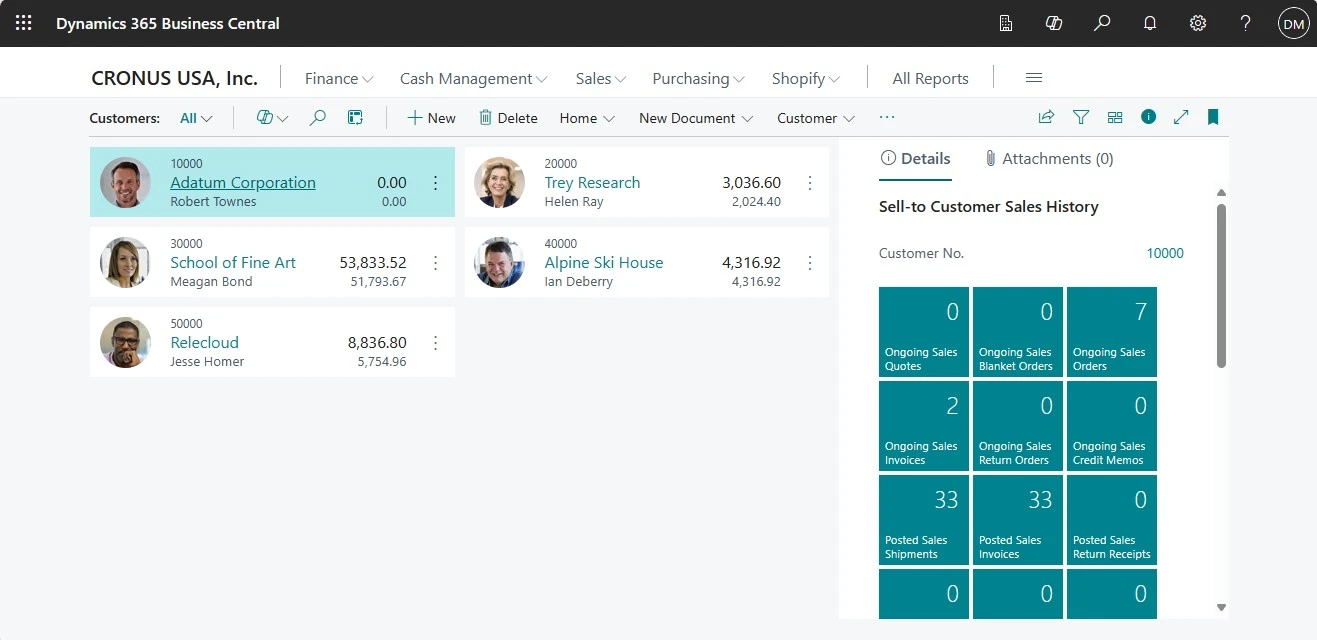
Dashboards:
Features customizable dashboards that provide real-time insights into key performance indicators (KPIs) and business metrics. These dashboards are essential for monitoring business health and making informed decisions quickly.
Auditing:
Includes comprehensive auditing capabilities that help track changes and maintain compliance with industry regulations. This feature is crucial for ensuring data integrity and transparency in business operations.
Payment Integration:
Supports integration with popular payment gateways like PayPal, Stripe, and Square. This enables seamless payment processing and improves cash flow management.
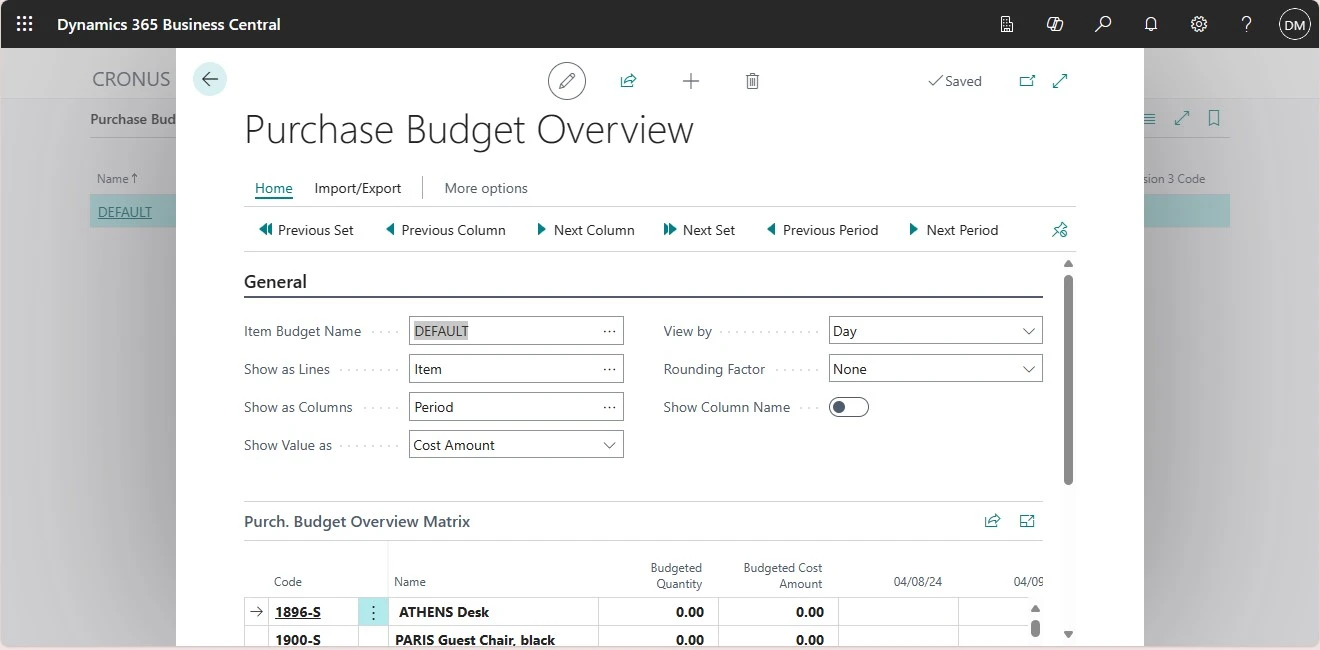
Inventory and Supply Chain Management:
Advanced inventory and supply chain management features help optimize stock levels, manage orders, and streamline logistics. This is vital for businesses that rely on efficient supply chain operations.
Service Order Management:
Allows businesses to manage service orders, including tracking work orders, scheduling, and invoicing for services. This is particularly important for service-based industries.
Manufacturing Capabilities:
Offers manufacturing management features such as production planning, bill of materials, and capacity planning. These tools help manufacturers optimize production processes and reduce costs.
Accessing the Software
Cloud:
Business Central is primarily a cloud-based ERP solution, offering the flexibility and scalability of a SaaS (Software as a Service) model. Users can access the software from anywhere with an internet connection.
Desktop:
While the primary access is through the cloud, Business Central can also be accessed via desktop through a web browser, ensuring compatibility with various operating systems.
Mobile App:
Available as a mobile app for both iOS and Android devices. This allows users to manage their business operations on the go, providing real-time access to critical business information.
Web Browsers:
Business Central works with all major web browsers, including Google Chrome, Mozilla Firefox, Microsoft Edge, and Safari. This ensures users can access the ERP software from their preferred browser without compatibility issues.
Track Expenses
Monitor and manage business expenses effortlessly.
Tax Preparation
Simplify tax compliance and reporting.
Time-Saving Automations
Automate key processes for improved efficiency.
Add-Ons
Add-On Options
- Payment Processing: Microsoft 365 Business Central supports payment processing through integrations with third-party payment gateways like PayPal, Stripe, and Square.
- Payroll Processing: Business Central does not have built-in payroll processing but can integrate with third-party payroll systems such as ADP and Paychex to manage payroll needs.
- Project Management: Business Central includes project management features in both the Essentials and Premium plans. For more advanced project management capabilities, it can integrate with Microsoft Project.
- Time Tracking: Time tracking is not built-in but can be added through integrations with third-party tools such as TSheets and TimeCamp.
Integrations
- CRM: Integrates seamlessly with Microsoft Dynamics 365 Sales for advanced CRM capabilities.
- Time/Expense and Payroll Tools: Integrates with popular tools like ADP, Paychex, TSheets, and Expensify.
- Payment Gateways: Supports integration with PayPal, Stripe, and Square for payment processing.
- Zapier: Allows integration with thousands of other apps and services, enabling automated workflows and data synchronization.
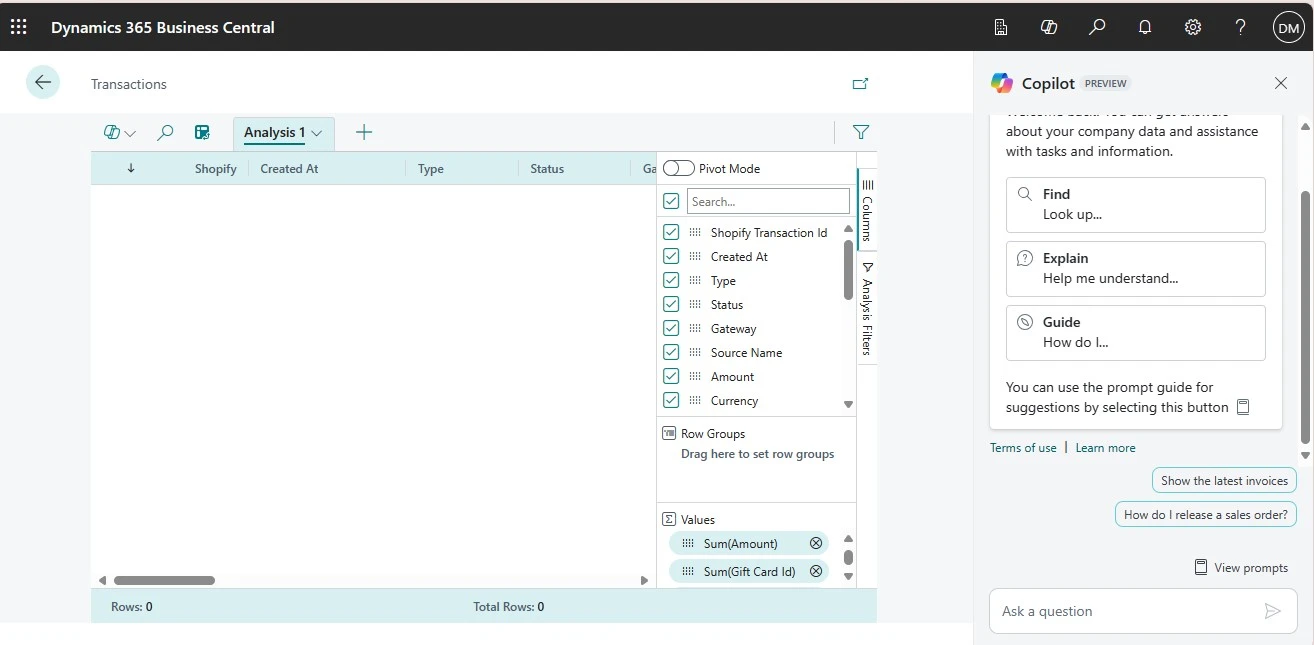
Available Integrations with Apps:
- Mobile Apps: Business Central is available as a mobile app on iOS and Android platforms, enabling access from smartphones and tablets.
- E-commerce Platforms: Integrates with platforms like Shopify, Magento, and WooCommerce for seamless e-commerce management.
- Marketplace Apps: Available on Microsoft AppSource, where users can find various add-ons and extensions to enhance Business Central’s functionality.
Other Types of Integrations:
- Cloud Storage and Collaboration: Integrates with Microsoft OneDrive, SharePoint, and Teams for cloud storage and collaboration.
- Productivity Suites: Works seamlessly with Microsoft 365 (formerly Office 365), including Outlook, Excel, and Word for enhanced productivity.
- APIs and Web Services: Supports custom integrations through APIs, allowing businesses to connect Business Central with other systems and services.
Supported Devices
Access ERP tools across a range of devices.
Ease Of Use:
Ease of Setup
- Setup Process: Microsoft 365 Business Central is designed to be user-friendly and can be set up with minimal IT support. It can be used right out of the box for basic functionalities. However, for more complex configurations and integrations, IT support or consulting services might be needed to ensure optimal setup.
Interface and Dashboards
- User Interface: The interface of Microsoft 365 Business Central is modern, intuitive, and easy to navigate. It follows the familiar Microsoft design language, which is consistent with other Microsoft 365 products, making it easier for users who are already accustomed to the Microsoft ecosystem.
- Dashboards: The dashboards in Business Central are highly customizable and provide a comprehensive view of key business metrics. They include visual charts, graphs, and key performance indicators (KPIs) that help users monitor and manage their operations effectively. Users can tailor their dashboards to display the most relevant data for their roles, enhancing productivity and decision-making.
Learning Curve and Training
- Learning Curve: While the basic functionalities of Business Central are straightforward and easy to use, there may be a learning curve for advanced features and customization options. Users with experience in other Microsoft products may find it easier to adapt.
- Training Program: Microsoft offers a variety of training resources to facilitate onboarding and help users get the most out of Business Central. These include: Online Tutorials: Step-by-step guides and video tutorials available on the Microsoft Learn platform.
- Webinars and Workshops: Regularly scheduled live training sessions and workshops.
- Documentation: Comprehensive online documentation and user manuals.
- Community Support: Access to ERP forums and communities where users can ask questions and share knowledge.
- Partner Training: Microsoft partners often provide tailored training and implementation support for businesses.
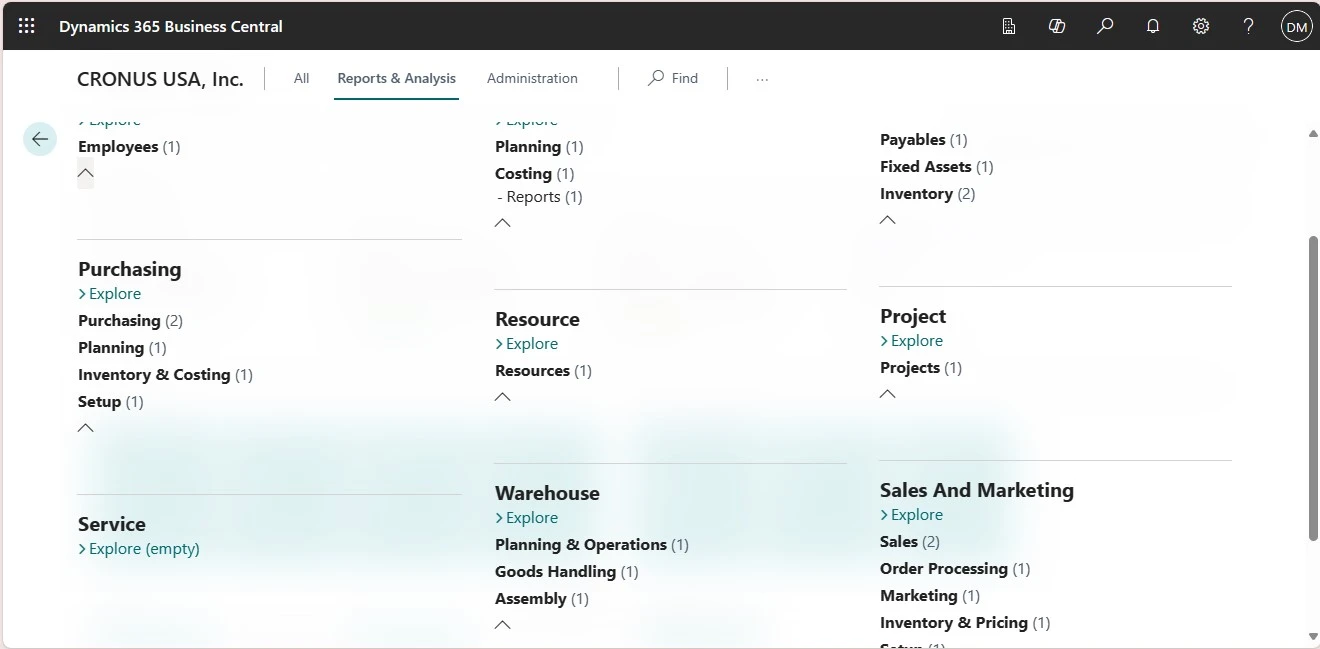
Verdict:
Microsoft 365 Business Central is a robust, comprehensive ERP solution for small to medium-sized businesses, offering extensive features and seamless integration with the Microsoft ecosystem. Despite a learning curve and potentially high costs for small businesses, its benefits in operational efficiency, customization, and support make it a valuable investment. Recommended for businesses seeking an all-in-one platform for financials, sales, service, and operations management.

